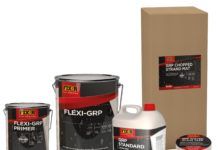 You’ve researched your roofing products, recommended the best solution to your customer, invested heavily in time and materials for the job, and installed everything to the highest of standards – only to hear from your customer some time down the line that there’s a problem. Time to dig out the warranties.
You’ve researched your roofing products, recommended the best solution to your customer, invested heavily in time and materials for the job, and installed everything to the highest of standards – only to hear from your customer some time down the line that there’s a problem. Time to dig out the warranties.
When things go wrong, robust warranties can provide a great safety net, however sometimes they are not always what you had hoped for. Often, they tend to be taken for granted with very little understanding of what they actually represent or cover.
Guarantees and warranties are available for most products these days – if they are not, you should question whether it’s wise to purchase that particular product – and the roofing industry is no exception. A warranty is an assurance or promise concerning the quality of the roofing products you buy. Having a warranty in place means it is the responsibility of the manufacturer to repair or replace what’s wrong, should it become defective in use – provided it has been installed to a specific standard, practice or instruction. An extended warranty, which usually comes at an additional cost, simply extends your protection over a longer specified period of time.
But how many of us concern ourselves with the warranty when we are making purchasing decisions – other than the length, which is probably the least important – or how many of us even bother to read the warranty terms and conditions?
Not many I guess, and understandably so: they don’t make suitable beach reading material and understanding some of the legal implications can be quite a challenge too. However, getting to grips with the fine print of a manufacturer’s warranty before investing in their materials is essential – for both you and your customer.
A warranty can often be a determining factor when choosing which roofing products to use. Not only does it instil trust with the company and the brand you are purchasing from, it confirms the company’s confidence in the product. It also offers you reassurance that they will be there for you, in the event of product defect or failure. But should we just accept the manufacturer’s word or promise?
Lifetime warranties, lifetime cover?
Some products, such as natural slate, come with the seduction of lifetime warranties – in some cases, up to 100 years! On the face of it, what a great incentive to purchase a particular slate; no risk and no worries for a whole century. On closer inspection, however, how many of these companies will be around to honour such promises? And, if the slate was imported, is the warranty even enforceable under UK law?
Lifetime warranties should be approached with caution. It’s highly doubtful that roofing products or systems will actually last an entire lifetime. In such cases, always ask to read the terms and conditions. In some cases, within the small print, the manufacturer’s definition of a ‘lifetime’ is between ten and 20 years. In addition, they tend not to be endorsed by a separate insurance company.
You may think that an extended warranty will cover anything that goes wrong with your purchase, but this is not true either. Extended warranties are typically rife with exclusions and fine print. They often don’t cover all the components of the product and certainly don’t extend to the installation.
Multiple warranties, multiple headaches
Warranties also come separate for each product when installing multiple products on a job. This can cause untold headaches when trying to collate everything in one place for your installation, so it pays to kee




